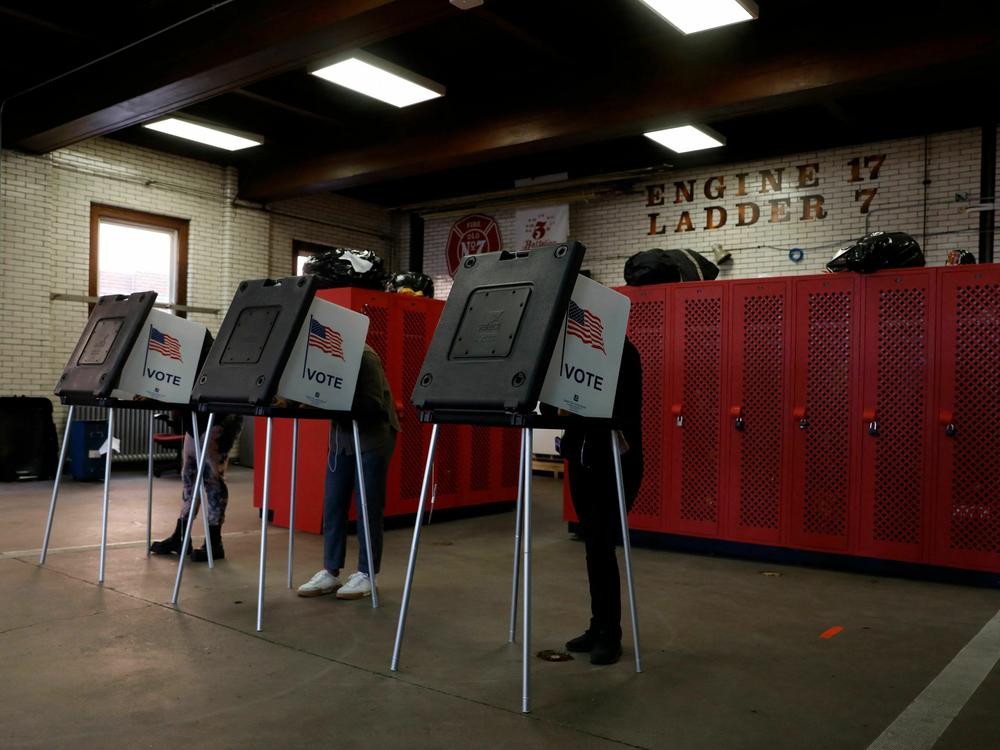Section Branding
Header Content
New Michigan law means people leaving prison will automatically be registered to vote
Primary Content
EAST LANSING, Mich. — Malijah Gee was first incarcerated in a Michigan prison when he was about 17 years old.
"I came here as a youth, so I was never able to vote," Gee said.
After spending 36 years behind bars, Gee is expected to be released early next year, and he says he's excited to vote for the very first time in the state's presidential primary in February.
"So now getting out and having that opportunity is a great feeling," Gee said. "One of the things that we need to do in here is to now start helping prisoners become aware of that particular bill."
Michigan already allows people with felony convictions to regain their voting rights once they're out of prison, but now the state will go one step further and expand automatic registration to incarcerated people after they're released.
Democratic state Rep. Penelope Tsernoglou sponsored the bill that Gov. Gretchen Whitmer recently signed into law, and is part of a broader expansion of voter access state Democrats have enacted.
Tsernoglou says the goal of her legislation is to improve access for what has historically been a disenfranchised population.
"Michigan actually has a really good rate of voter registration, but we wanted to increase that even more, and the incarcerated population is one of the populations that is least likely to be registered to vote," she said.
Before this law, which takes effect in 2025, the Michigan Department of Corrections was already working with the secretary of state to register incarcerated people to vote when they are released. The program is part of a larger initiative to help inmates get vital documents like birth certificates and state IDs.
"So the Department of State would pre-register folks at that time, and then would update those records so that they can vote," Department of Corrections spokesperson Kyle Kaminski said. "So really what the legislation does is it codifies this practice to ensure that it'll continue long term."
Since the program was launched in 2020, the state has pre-registered nearly 5,000 incarcerated people to vote.
"It's not that incarcerated people don't want to participate in the democratic process but that many don't think that they can," said Khyla Craine, deputy legal director at the secretary of state's office. "They don't want to jeopardize their ability to remain outside of the criminal justice system once they have been released."
Voting rights for people with felony convictions vary from state to state. Michigan is one of 23 states in the nation that allow convicted felons to vote once they're released, and only Maine, Vermont, Washington, D.C., and Puerto Rico extend these rights to people in prison.
Craine says the new law will help dispel some of that confusion and be a part of the first step in helping formerly incarcerated people re-enter society.
The organization Voters not Politicians has been advocating to increase voting rights access for people in Michigan. The group worked closely with the legislature to include people with felonies into the state's current automatic voter registration system.
"I do think that we need the next part of it to be the education piece," Voter Not Politicians Director Kim Murphy-Kovalick said.
She says they are working with lawmakers for a bill that would fund programs to educate inmates on their voting rights.
As Gee prepares to re-enter society, he says he plans to take some time to research before deciding who to vote for.
Copyright 2023 WKAR Public Media. To see more, visit WKAR Public Media.

